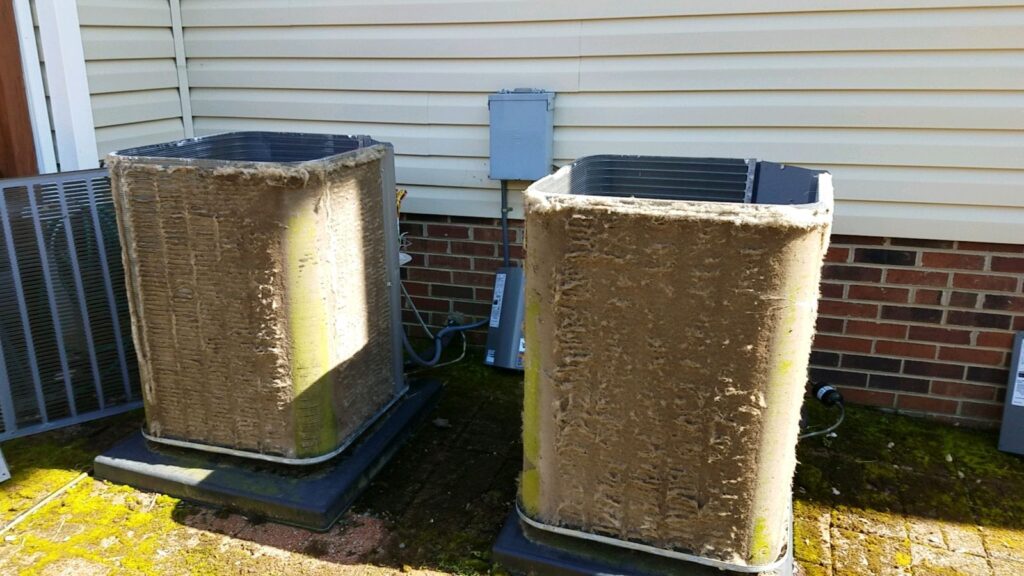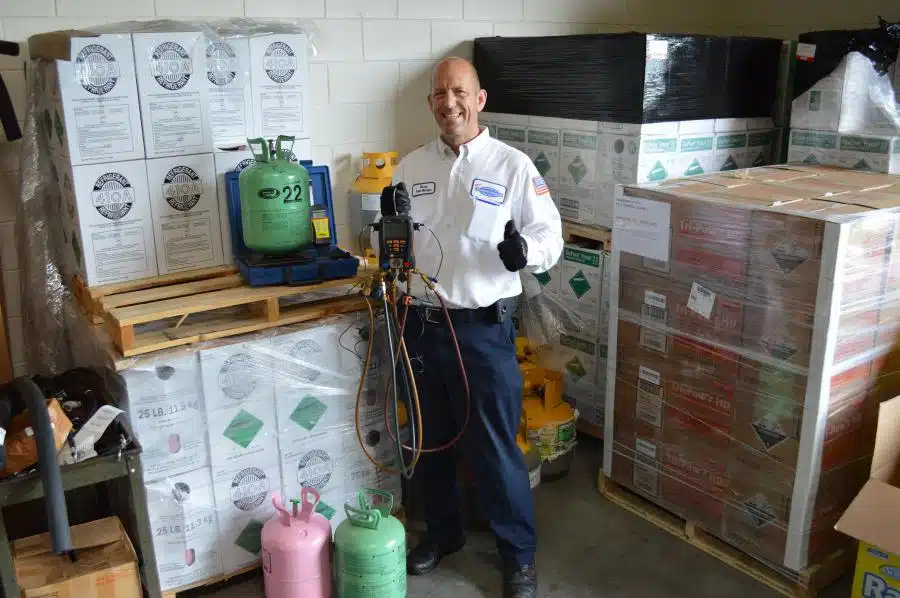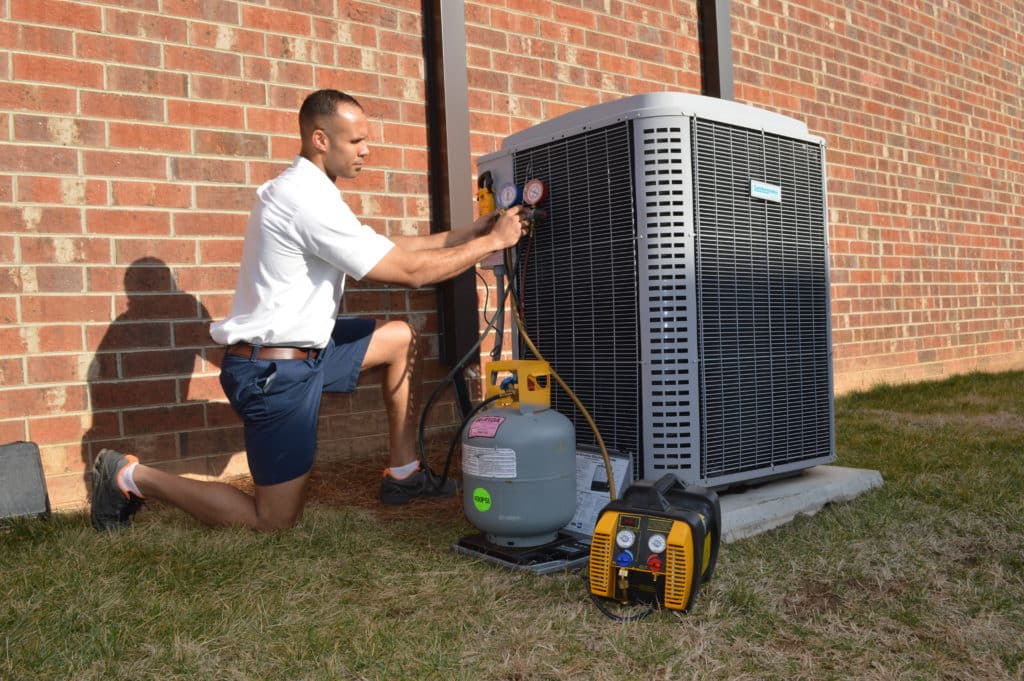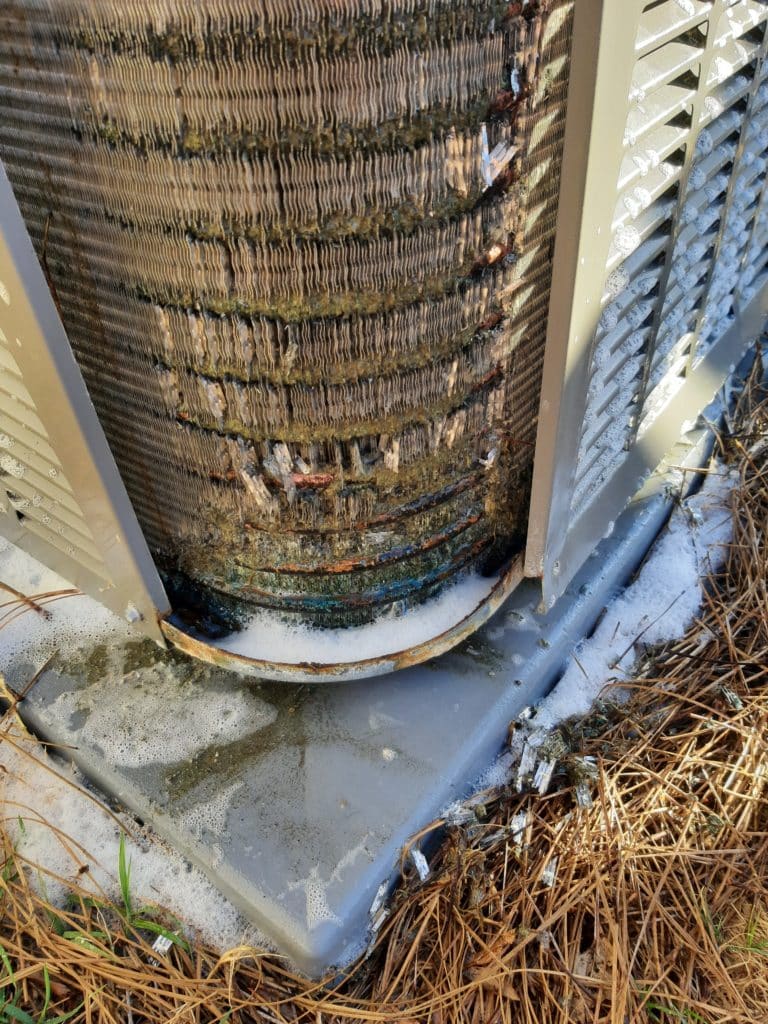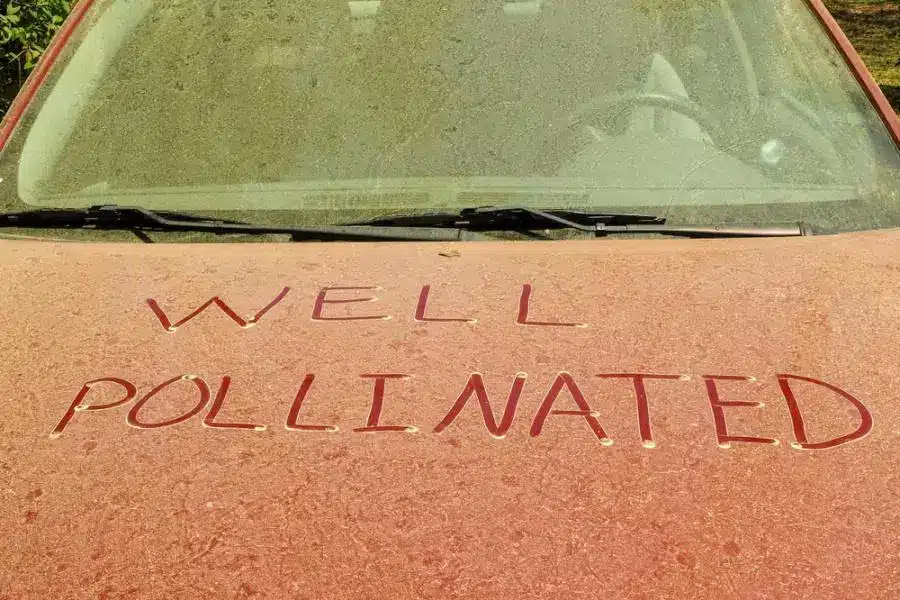
What’s worse than the itchy eyes, scratchy throat, and constant sneezing that come with seasonal allergies? Not much, in our opinion!
If you’re local to North Carolina, you’re probably all too familiar with the area’s high pollen count. It’s bad when you’re outside on a walk or trying to enjoy your morning coffee on the porch, no question about it. But when it follows you inside? Your spring or summer can become unbearable.
Let’s talk more about pollen in North Carolina.
Is it Allergies or a Cold?
When the sneezing and itchy eyes grab hold and won’t let go, knowing the difference between allergies and a cold can help you find the best way to start feeling better. After all, while both can make you miserable, treating them the same way won’t always do the trick.
Allergies Vs. Colds
Unfortunately, allergy symptoms and cold symptoms are pretty similar. Both can include sneezing, itchy and watery eyes, runny nose, coughing, and more. But here’s the difference: colds only last for about a week or so while allergies can last all season long (and get worse when you go outside or open the window).
The Difference Between Allergies and Colds
Still not sure whether you’re dealing with allergies or a cold? Check out some of the following issues and if they’re most commonly associated with allergies or colds:
- Itchy eyes? That’s almost always allergies.
- Fever or body aches? Likely a cold (allergies don’t cause those).
- Do your symptoms come and go with the seasons? Allergies are probably to blame.
- You’re fine for a few weeks, then suddenly feel terrible? Colds tend to hit fast, while allergies stick around as long as allergens are present.
Types of Pollen in North Carolina
In North Carolina, we don’t just have one pollen season—we have three. Lucky us, right?! There’s even some overlap in these seasons to wreak extra havoc on your home’s indoor air quality (IAQ).
Typically, different allergy seasons are defined by the types of plants producing pollen.
Tree Pollen
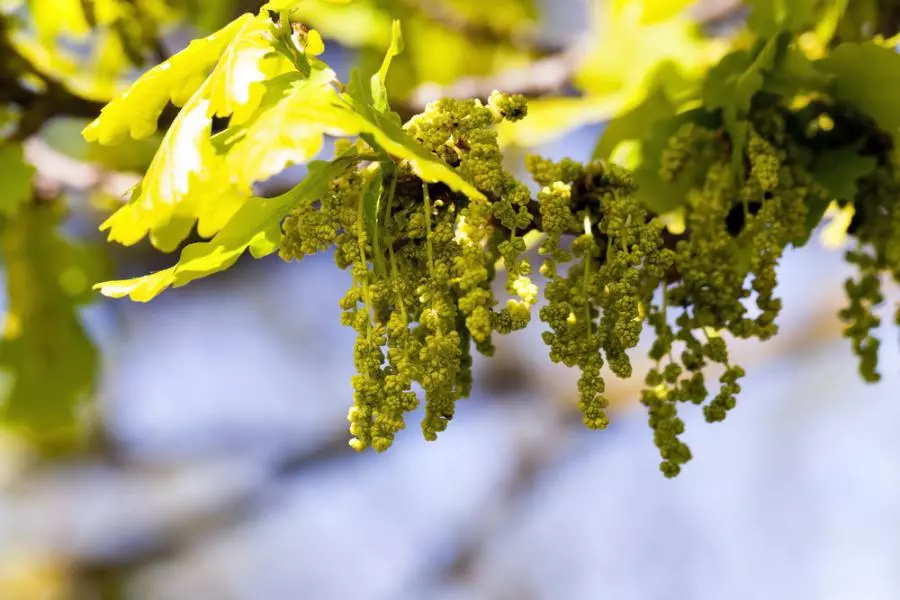
Between March and June, trees release their pollen into the air. In North Carolina, this allergy season tends to peak in April. Some of the biggest tree pollen culprits in Charlotte include:
- River birch
- American beech
- Hickory
- Oak
- Yellow poplar
That’s a lot, right? The good news is there are ways to keep that tree pollen from taking over your home and making your allergies awful. Even though you can’t stop the trees from doing their thing, you can take steps to minimize how much of that pollen makes its way inside like keeping windows closed and changing HVAC filters regularly.
Pollen from Grass
Just when you think allergy season is winding down, grass pollen steps in to keep the sneezing going. In North Carolina, grass pollen season runs from April through September, with the worst of it hitting in late spring and early summer.
Since grass pollen is light and easily carried by the wind, it’s nearly impossible to avoid completely. But you can reduce your exposure by keeping your lawn trimmed short, wearing a mask when mowing, and using your HVAC system to filter out pollen instead of opening windows.
Pollen from Weeds
It’s not enough that they have to grow in your garden, but now they’re gonna affect your air quality too? Yeah, we know…
Weeds might not look as intimidating as big leafy trees, but they pack a serious punch when it comes to allergies. Weed pollen tends to spike in late summer and early fall, with plants releasing fine, airborne pollen that can travel for miles.
Weed pollen can be sneaky, hanging around long after other allergens settle down. Spending more time indoors on windy days, showering after outdoor activities, and keeping your air filters clean can help cut down on symptoms.
Ragweed
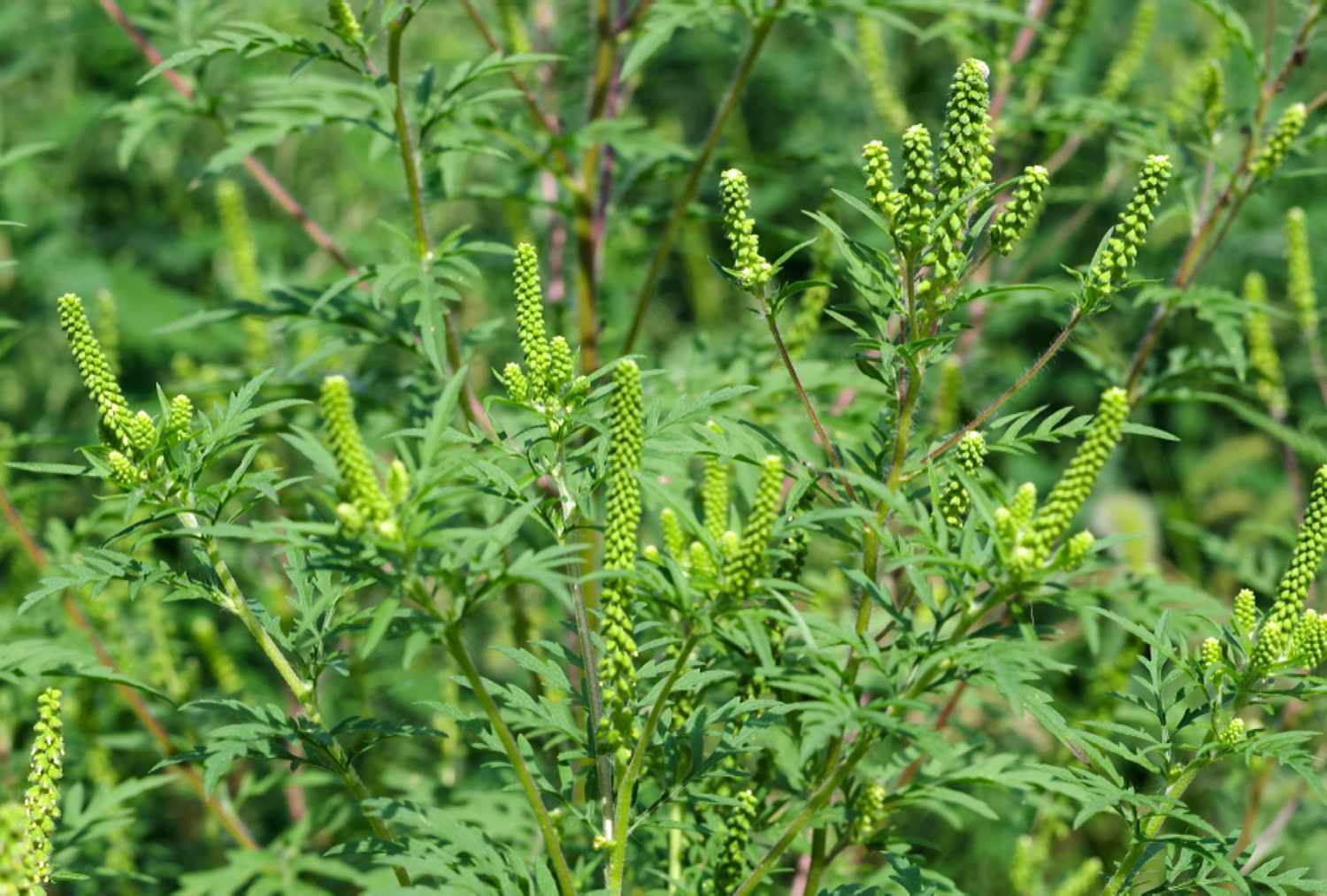
If you have fall allergies, there’s a good chance ragweed is to blame. This plant releases massive amounts of pollen from August through November, with September being peak season. The worst part? Ragweed pollen can travel far… and we mean FAR.
Ragweed allergies can be brutal, triggering sneezing, congestion, itchy eyes, and even asthma flare-ups. Keeping doors and windows shut, using a HEPA filter in your HVAC system, and rinsing off after spending time outside can help you breathe easier during ragweed season.
Keeping Indoor Air Quality High During Allergy Season(s)
As we touched on earlier, allergy season is practically all year round in North Carolina. With so many different pollen sources to watch out for with trees in the spring, grass in the summer, and weeds in the fall, it can feel like there’s no escape. But while you can’t control what’s floating around outside, you can take steps to keep your indoor air as clean as possible.
How to Reduce Allergens in Your Home
- Upgrade your air filter. A high-quality filter (like a HEPA filter) can trap pollen, dust, and other allergens before they circulate through your home.
- Stick to a regular HVAC maintenance schedule. A well-maintained system runs more efficiently and helps keep your air clean. Spring and fall are great times to schedule a check-up.
- Keep windows and doors closed. Even if the weather is nice, an open window is an open invitation for pollen. Use your HVAC system to keep air flowing instead.
- Vacuum and dust frequently. Pollen and other indoor air pollutants settle on floors, furniture, and fabrics, so regular cleaning helps keep them from building up indoors.
- Shower and change clothes after being outside. Pollen sticks to hair, skin, and clothing, so rinsing off helps keep allergens from spreading around your home.
By making a few simple changes, you can create a home environment that helps you breathe easier—no matter what’s floating around outside.
Let Morris-Jenkins Help! We Offer Indoor Air Quality Services in Charlotte, NC
You deserve to breathe nice, clean air all year round—but if you suffer from seasonal allergies, you know that’s much easier said than done. That’s why Morris-Jenkins is here; we proudly provide indoor air quality services in Charlotte.
With our help, you can make indoor air pollution a thing of the past! Whether it’s with an air purifier, media air cleaners, or any other system, our air quality solutions can make a huge difference! We’ll help you find the best solution for your home’s exact needs.
Give us a call or contact us online today for IAQ services in the Greater Charlotte area.
